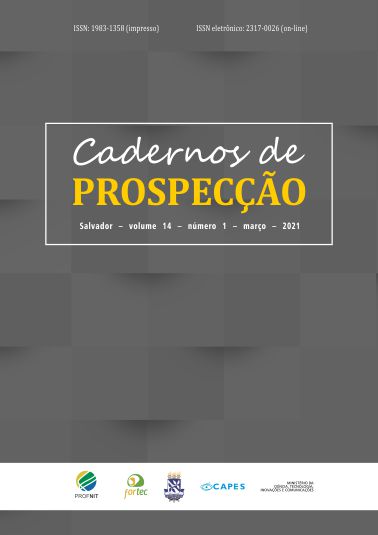The National Innovation Policy and Science and Technology Institutions (ICTs)
DOI:
https://doi.org/10.9771/cp.v14i1.42647Keywords:
Public Policies , Science, Technology , Innovation.Abstract
Is it possible to have a strong impact through the Innovation Policy of ICTs in the organization, implementation and execution of federal, sectorial, regional, state or municipal policies in order to boost the National ST&I System (SNCTI)? How can technological prospecting support the implementation and consolidation of innovation policies? Before answering these questions, it is important to briefly go through the trajectory of the framework that frames the Technological Innovation Centers (NITs) and the Innovation Policy of ICTs. After the regulation of the Innovation Law, in 2005, there was a growing approximation between ICTs and companies, causing important changes in the institutional and management models of ICTs. However, with regard to the Institutional Innovation Policy itself, the first version of the Law was vague and resulted in difficulties for its institutionalization, having been restricted to the implementation of NITs for the management of intellectual property and technology transfer[1].In the reform of Law no. 10,973, materialized by Law no. 13,243, of 2016, the technical and legal team of the Ministry of Science, Technology and Innovations (MCTI), with the purpose of improving the innovative technological entrepreneurship of ICTs, revised, in Chapter II of Law n. 10,973, articles 16, 17 and 18, which deal, respectively, with Technological Innovation Centers (NIT), information to the MCTI and budget organization measures and innovation revenues to support the innovation policy in the ICT. In this action, article 15-A was introduced, which establishes the guidelines for implementation and definition of strategic objectives for the ICT innovation policy, considering the institution's mission. In this orientation, the ICT establishes the guidelines to organize the governance and coordination instances and orders the managerial and normative instruments to structure, in an integrated way, the processes of knowledge generation and innovation in partnership with the productive environment, considering the policies , instruments, resources and actors for local, regional and national development. More specifically, the ICT innovation policy must reinforce the interfaces and connections between technology-based entrepreneurship instruments, with technology transfer and intellectual property management, aligning them with institutional training that is much broader than the performance NIT manager. Since this also had its capacity expanded by the possibility of its own legal personality to strengthen its executive action and management support.
Downloads
Download data is not yet available.
Downloads
Published
2021-01-02
How to Cite
Pedro, E. da S. (2021). The National Innovation Policy and Science and Technology Institutions (ICTs). Cadernos De Prospecção, 14(1), 1. https://doi.org/10.9771/cp.v14i1.42647
Issue
Section
Editorial
License
Copyright (c) 2021 Cadernos de Prospecção

This work is licensed under a Creative Commons Attribution-NonCommercial 4.0 International License.
O autor declara que: - Todos os autores foram nomeados. - Está submetendo o manuscrito com o consentimento dos outros autores. - Caso o trabalho submetido tiver sido contratado por algum empregador, tem o consentimento do referido empregador. - Os autores estão cientes de que é condição de publicação que os manuscritos submetidos a esta revista não tenham sido publicados anteriormente e não sejam submetidos ou publicados simultaneamente em outro periódico sem prévia autorização do Conselho Editorial. - Os autores concordam que o seu artigo ou parte dele possa ser distribuído e/ou reproduzido por qualquer forma, incluindo traduções, desde que sejam citados de modo completo esta revista e os autores do manuscrito. - Revista Cadernos de Prospecção está licenciado com uma Licença Creative Commons Attribution 4.0. Esta licença permite que outros remixem, adaptem e criem a partir do seu trabalho para fins não comerciais, e embora os novos trabalhos tenham de lhe atribuir o devido crédito e não possam ser usados para fins comerciais, os usuários não têm de licenciar esses trabalhos derivados sob os mesmos termos.
Este obra está licenciado com uma Licença Creative Commons Atribuição 4.0 Internacional.





